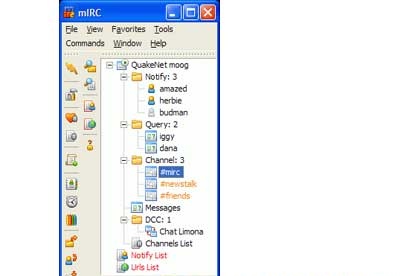


More importantly, open sourcing a 15 year old product isn't necessarily going to birth any new (interesting) development. Will an open source mIRC mean you will get better error handling? Unless you're willing to implement it yourself (and are offering to commit to maintaining the code you wrote for a while longer), there's really no guarantee. There are many great open source examples of this they all have problems, they all take a long time to address certain issues.

Simply open sourcing a product doesn't automatically mean everything you hate will be fixed (or can be). You'll find that the bureaucracy of actually contributing to projects like those is generally pretty high, and it's not as idealistic a situation as you make it out to be. There are many open source clients that you can contribute to, if you want. While this fact may not be important to you, it is important for the author of the program to be able to benefit from his work as well. Realize that this all sounds great, but Khaled makes a living off of maintaining mIRC.


 0 kommentar(er)
0 kommentar(er)
